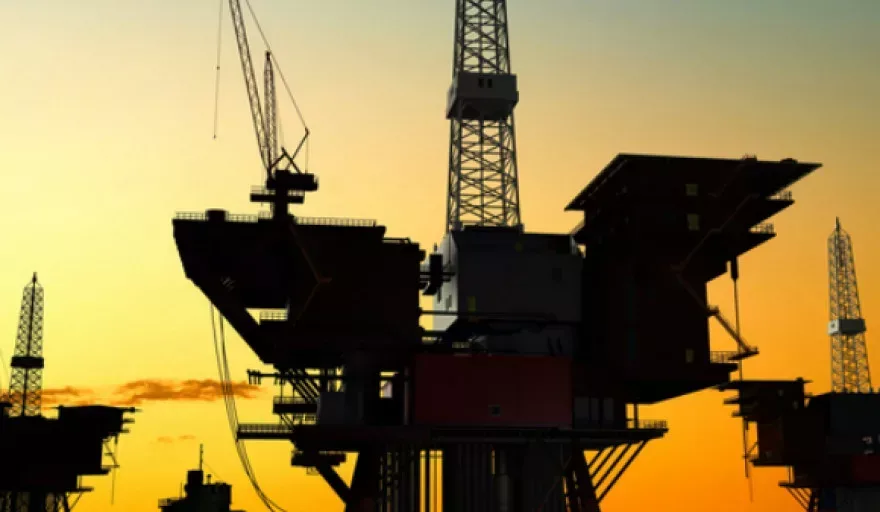
Despite crude oil having recently brought the nerves back among energy investors thanks to a recent brush with levels close-to US$40 a barrel, market analysts believe that international events over the next few months will conspire to send oil prices sharply upward; once the gasoline glut eases. This being said, it is believed that Libya and Nigeria are the two ‘red herrings’ of the OPEC member states, with both countries marred by instability and the latter having recently had its supply cut in half as militants target the country’s pipelines.
“Since March, Nigeria has struggled with an insurgency in the Niger Delta region, where the bulk of its oil and natural gas industry is located. Violence in the Niger River Delta escalated when the Nigerian Government, under tremendous financial pressure due to the collapse in oil prices since 2014, cut subsidies to militia groups and ended its traditional protection of oil facilities. The violence reflects both the worsening economic conditions and historic grievances of groups living in the Niger Delta region,” commented Gregory Brew, Researcher and Analyst, oilprice.com.
The country’s oil production steeply declined from 2.2 million to 1.3 million bpd over the period of insurgency. In a promising move at the start of August, however, Nigeria resumed payment of allowances to former Niger Delta rebels under the 2009 amnesty scheme on the condition that they stop carrying out oil pipeline attacks in this volatile, oil-rich area. It is still too early to tell the speed at which violence will settle and oil production will recover, but the early signs are promising as the Government recently announced a promising increase to 1.9 million bpd.
Strengthening investments
According to Helima Croft, Global Head of Commodities Strategy at RBC Capital Markets, “there’s this view that because Nigeria [has] resumed these amnesty payments, it’s going to bounce back as well [with] 400,000-500,000 barrels”.
These disruptions in Nigeria’s oil production have been a major factor behind the latest rally in crude oil prices, but future changes in the domestic political climate and a recent influx of new investment looks set to change that, with possible ramifications on the crude price for later this year as the country’s producers remain under pressure.
“The Nigerian oil industry desperately needs this new investment, as structural weakness and crumbling infrastructure takes its toll, together with the damage done by militants. Maintaining a new level of production would require US$40-50 billion. Now that money is materialising, with the announcement of a MoU with China North Industries Group Corp. totalling $8.5 billion,” added Brew. Saudi Arabia’s Government has also announced plans to list around a five percent stake in its state producer, Saudi Aramco. Russia’s state-owned exporter, Rosneft PJSC is also seeking buyers for a 19.5 percent stake in its Company.
It seems Nigeria is keen to strengthen its ties with Europe as well, having agreed to bolster its existing bilateral cooperation with Spain at the start of August, 2016. In a bid to improve its oil & gas technical capacities and bilateral trade, Maikanti Baru, Group Managing Director of the state-run Nigerian National Petroleum Corporation (NNPC) said it would work closely with the Spanish National Oil Company to improve local refineries.
“We have challenges with our refineries and with Spanish National Oil Company refining about 900,000 barrels of crude oil a day, we can collaborate on that in our efforts to go forward,” Baru said, noting that the two countries already share more than $5.1 million in oil trade each year.
Market risks
Nigeria’s once booming economy has fallen on hard times and has been left in limbo with a barrel load of problems. Relying heavily on oil revenue for Government funding, the country faces a weak naira; which on the one hand means investors are having issues getting money out of the country, and on the other, the country becomes more attractive to new investors thanks to a lower cost of producing goods and services in the country. Rather than remaining a one-trick pony that relies on huge profits from oil and natural gas, this will eventually open opportunities in other vital industry areas such as bolstering the country’s infrastructure, agriculture and tapping the country’s significant resource wealth; much like the economic diversification strategies currently underway in the Middle East.
Minister of Power, Works and Housing, Babatunde Fashola agreed in a recent interview with the BBC that Nigeria can no longer build its future on oil revenue following the fall in global oil prices and that wiser investment choices need to be made to secure a better future.
“…where there is a global economic downturn and there will be local consequences… You can’t plan a future around extraordinary income that you don’t control the circles. This budget will be driven by resources from taxation and any serious government, any forward-looking government like this Government must understand that the boom that comes from commodity prices really is extraordinary income.
“We may have made some very poor choices over the time about how we spent that money [oil money], this administration has a focus now that we will deal with our funding issues first from taxation, corporate taxation,” he said.
Navigating turbulence
The speed at which Nigeria’s Government can overcome its adverse economic conditions and make progress on reforms, particularly addressing corruption and infrastructure constraints, will dictate whether international investors begin to look towards the country for new opportunities. Coupled with the lower naira, the country has the potential to attract new investors in other core markets, which may help the country pull away from its traditional mainstay in oil & gas.
“No country survives on her own investment but every country thrives first on the investment of her people and as first Nigerians are responding and investing on that economy I think that we will turn this corner,” summarised Fashola.
Globally, if high inventory levels can be cleared out, oil prices could rise as high as $70-80 a barrel in 2017, said Croft, as dynamics in the oil market remain bearish in the shorter-term.
Despite the country’s own economic and political problems, Fashola shared his optimism for the Nigerian market to recover: “There is a global downward trend. National growth projections are being revised downward and in these downward global times, there will be diverse local consequences. Ours is no different. We are not under-performing. We are facing a turbulent time; a difficult time but we will navigate. We will come through and I see that happening in the short-term rather than the long-term.”
Read this and more in the latest issue of Africa Outlook magazine here.






























